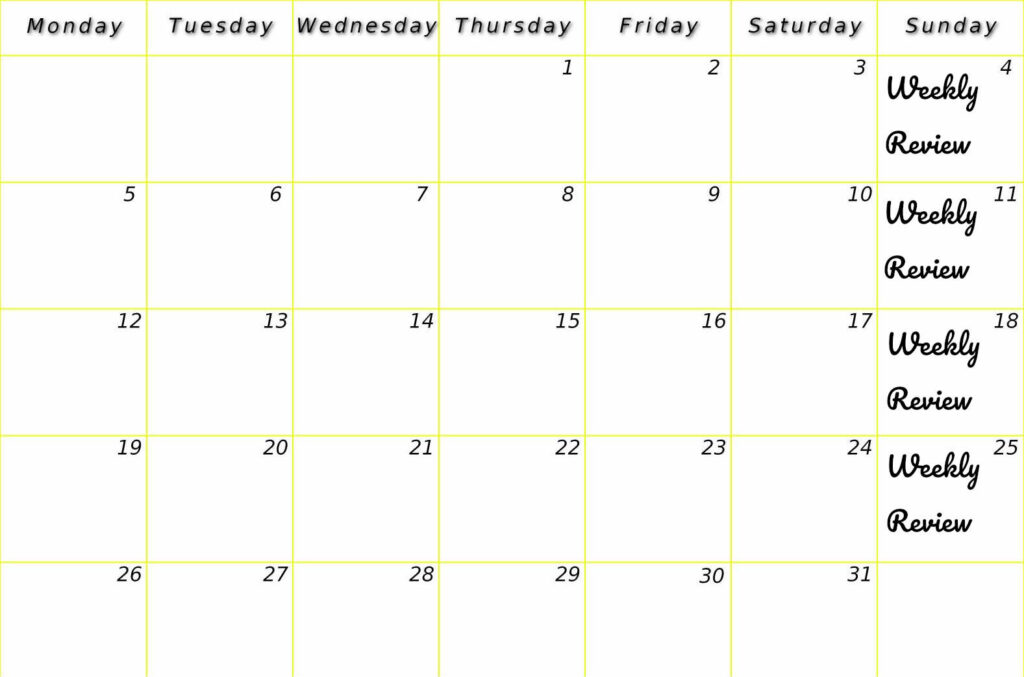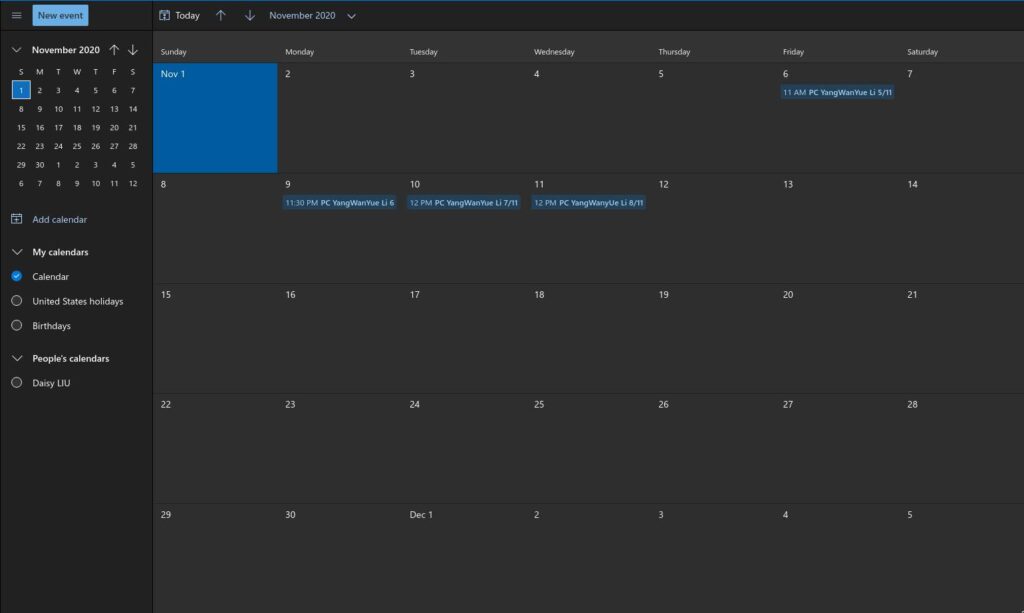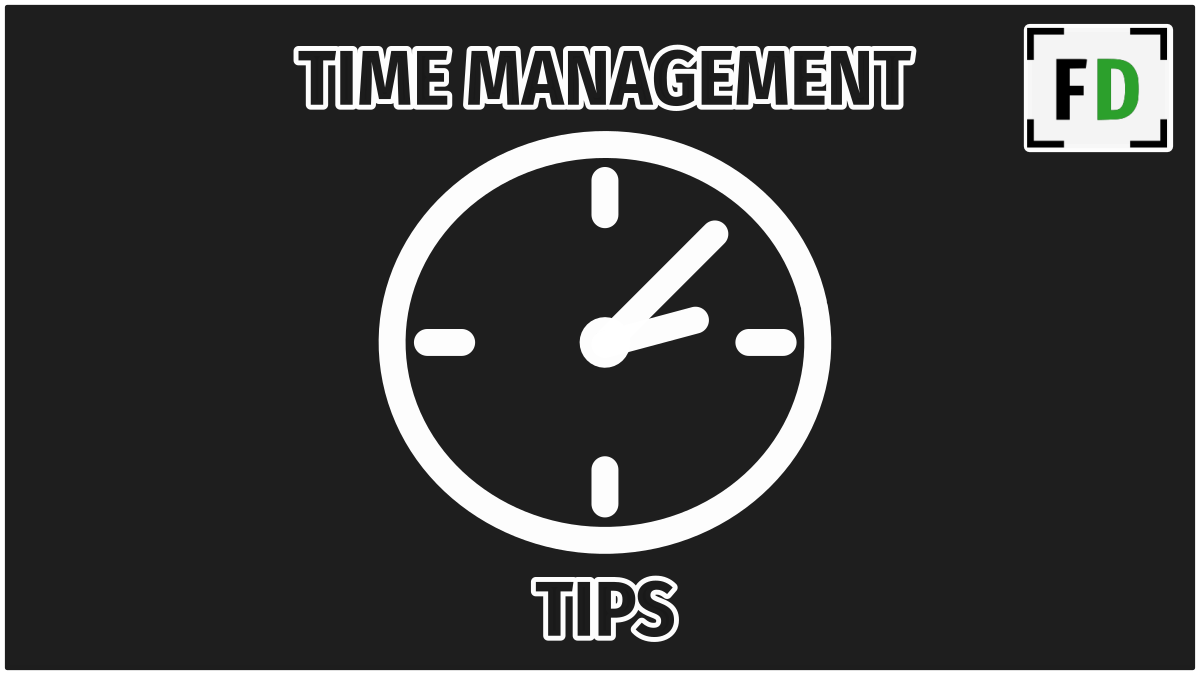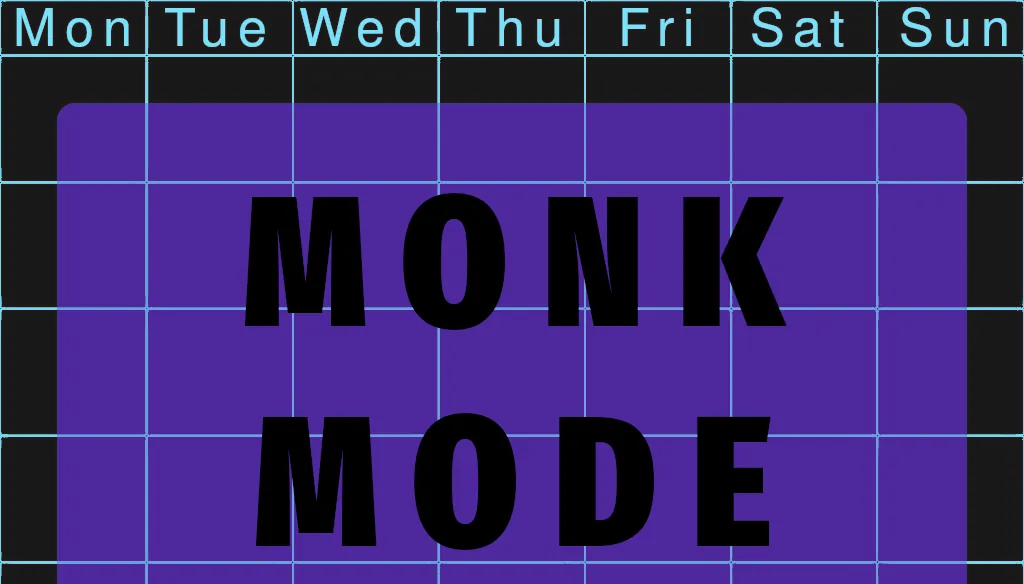The Weekly Review is a habit championed by David Allen in Getting Things Done. If you aren’t on the GTD bandwagon or have never heard of GTD, check out this post on how to set up your own GTD system to get up to speed. It’s been 20 years since GTD was released; that’s over 10,000 weeks! How many weekly reviews have you done in that time?
“The weekly review is,” Allen says, “a two-hour executive session you hold with yourself.” It’s the time you need to make important decisions about the direction of your projects and your life. But it also functions as a catch-up session to keep yourself up-to-date with all your life and work areas. The weekly review typically follows the following three steps.
- Get Clear – collect everything that has potential meaning to you.
- Get Current – review your system.
- Get Creative – what other cool things could you be doing?
Before you start a Weekly Review
Before starting your weekly review, ensure you have sufficient time to get through the whole thing. An hour and a half to 2 hours is usually how long it will take to go through a complete review. Block that time out and go somewhere you won’t be disturbed by children wanting to play or colleagues wanting a piece of you. This is your time.
These are the steps you will need to follow to complete a weekly review
Get Clear
- Clear your head – Write down anything potentially meaningful you have been holding in your head and put it into your inbox
- Clear your messages – Pull anything potentially meaningful from your email, messaging apps, and social media
- Clear your environment – Put into your inbox any physical items that you may have attention on
- Process – Process everything now in your inbox
Get Current
- Review your Calendar Past and Present – Anything to add? Remove? Is there anything still undone relating to your calendar items? Add them to your action lists. Is there anything coming in the next week or two you still need to do something about?
- Review your action lists – Check off done actions. Remove actions no longer relevant. Add new actions.
- Review your Projects List – Remove Completed Projects. Then, create new actions to progress your projects.
Get Creative
- Your system is in order, take a breath and feel the calmness!
- Review your Someday maybe lists – Is there anything you’d like to move to your active lists?
- Is there anything else you think would be cool?
How Often Do I Need to Do a Weekly Review?

OK, so it’s called the weekly review, but I don’t set aside the same time every week to do it, nor do I always do it weekly. David Allen called it the weekly review, but even he doesn’t prescribe it as something that needs to be done weekly.
The real question you need to ask yourself is how long can you go without doing a review and still be optimally productive? This may differ at different times, depending on how busy you are. I tend to do a review every 2-3 weeks, and that seems fine for me. However, for someone with a more dynamic schedule, that may not be enough.
Try it for yourself. You’ll know when life is getting out of control, and you need to reign it in with a ‘weekly’ review.
Do I really need to do the weekly review?
It’s easy to see the weekly review as a time drain, two hours of your weekend you could be doing something much more fun with (and it’s true!) You can easily think to yourself, “I’ve been doing fine without a weekly review. I can just skip it.”
During the workweek, you’re down in the weeds. You’re traveling around, working, and dealing with the issues that come up day to day. In the midst of all that, it isn’t easy also to think about your long-term goals, values, or vision for your life.
You can’t answer the question “will I still be happy if I stayed here for another five years” while also buying vegetables for dinner. You need space from your daily life to make those higher-level decisions. The weekly review gives you that space.
Aside from the higher level check-in, the weekly review is also the perfect place to check progress with your projects. In the middle of the week, it can be challenging to stay on top of all your tasks; some may have been left behind for a week or two. Doing your weekly review regularly means you can bring each project to your attention and make sure that they are still progressing.
What are some other benefits of the weekly review?
Get your email inbox back to zero.
Empty!
Getting your email inbox to zero is often called the holy grail of GTD. If you can get your email to zero as part of your weekly review, you’ll soon see why. An email inbox is where new tasks can arrive on your doorstep, day or night. Some of them may be meaningless, and some may be important. Most of the time, you won’t know which until you open it and read it.
An inbox with hundreds of unopened emails is like a minefield, and you don’t know what urgent or important tasks you have waiting to explode. An empty inbox is the holy grail of GTD because you can be confident that there are no tasks lurking in there anymore, which allows you to relax and feel more confident that what you are doing is the right choice for the moment.
Prepare for What’s Coming

If you use your calendar a lot or if other people can add items to your calendar, you may never really know what you have scheduled for the coming weeks. Rarely do we ever take the time out of a busy day to look over the coming weeks in our calendar and pull out potential tasks that we may need to do to be fully prepared for those events.
But if you regularly do your weekly review and incorporate this as part of your process, you will quickly see its value. For example, realizing that you have a speech to write, a presentation to create, or a tool to buy for something coming up is best done when you can still do something about it rather than the day before when you’re going to be stressed out and unable to do other tasks you had planned for the day.
A chance to reflect on your successes
You wrote that killer blog post, got that new client, and hit that PR in the gym. Studies have shown that not celebrating your successes is a surefire way to become demotivated and ultimately stop making progress. On the other hand, taking some time each week to mark those milestones will keep you moving forward and, more importantly, save you a happier version of yourself.
Ed Mylett talks about why celebrating your successes is so important in this episode of Impact Theory.









2 thoughts on “How to do a GTD Weekly Review”
Comments are closed.